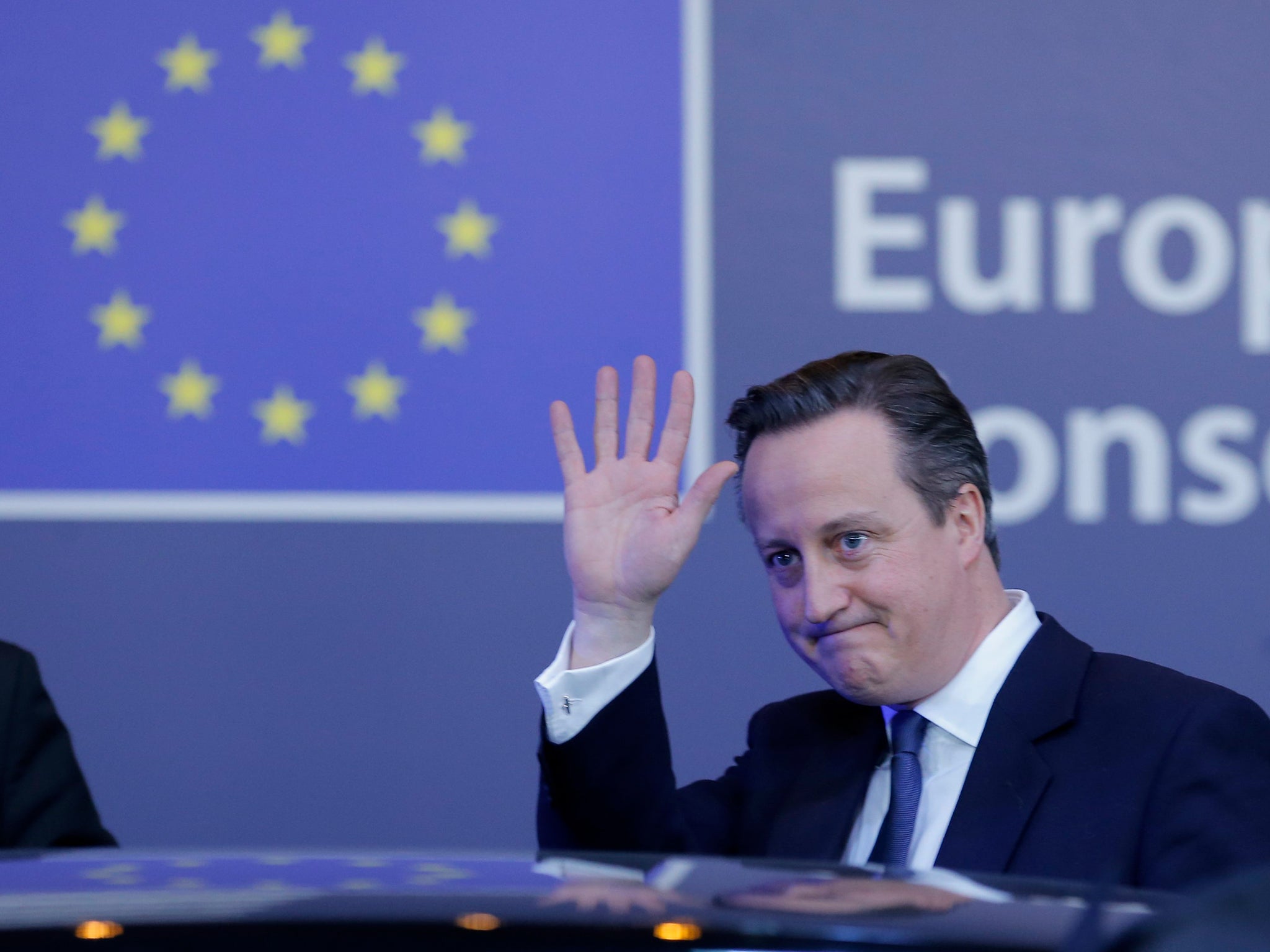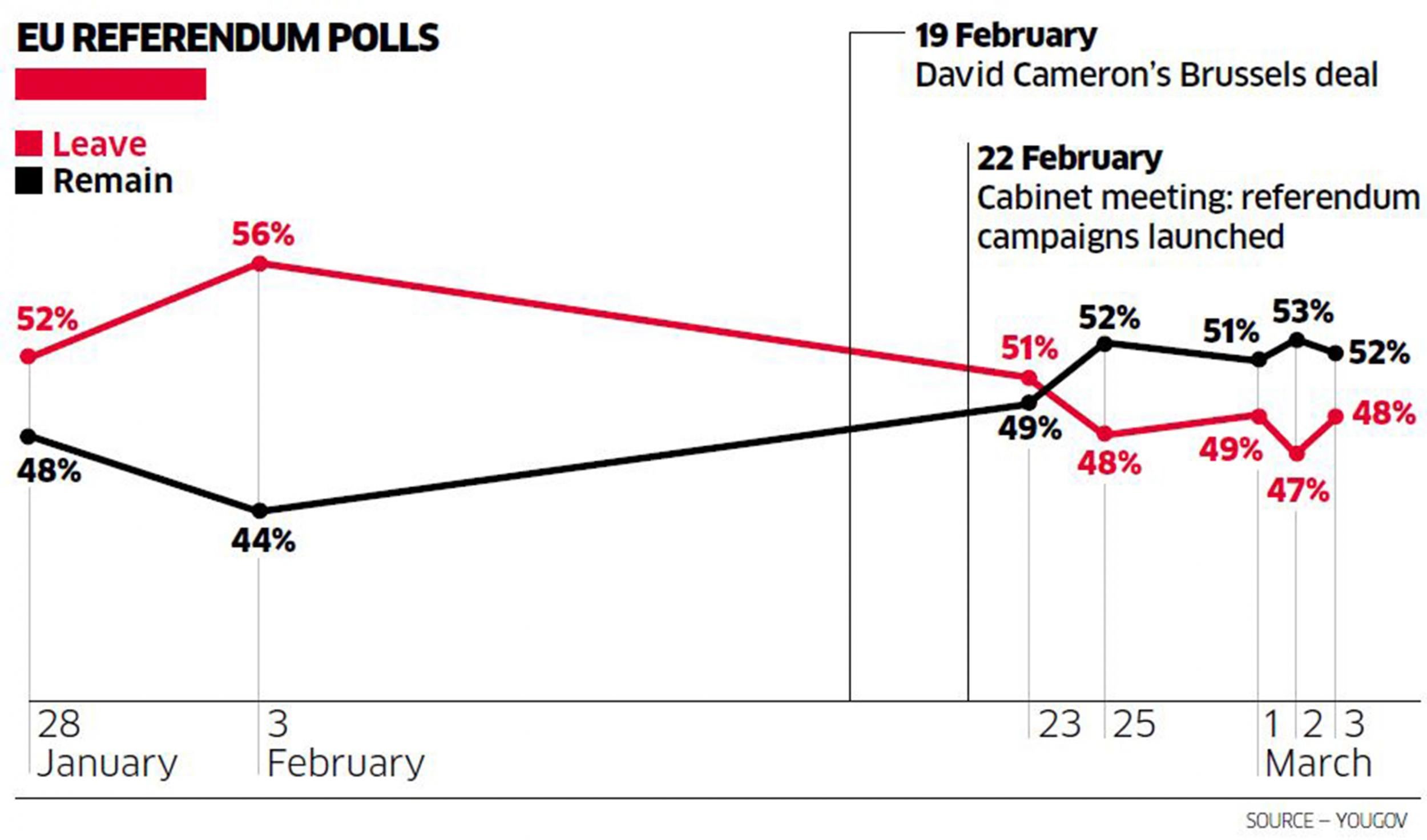EU referendum: Remain campaign goes ahead after Brussels agreement, poll shows
Polls show a movement in David Cameron’s favour in repeated polls before and after the deal

Your support helps us to tell the story
From reproductive rights to climate change to Big Tech, The Independent is on the ground when the story is developing. Whether it's investigating the financials of Elon Musk's pro-Trump PAC or producing our latest documentary, 'The A Word', which shines a light on the American women fighting for reproductive rights, we know how important it is to parse out the facts from the messaging.
At such a critical moment in US history, we need reporters on the ground. Your donation allows us to keep sending journalists to speak to both sides of the story.
The Independent is trusted by Americans across the entire political spectrum. And unlike many other quality news outlets, we choose not to lock Americans out of our reporting and analysis with paywalls. We believe quality journalism should be available to everyone, paid for by those who can afford it.
Your support makes all the difference.David Cameron has won the first two weeks of the EU referendum campaign, according to new polling by YouGov.
Since the Prime Minister concluded his renegotiation in Brussels on 19 February and allowed ministers to campaign against the deal on 22 February, YouGov has carried out five surveys, four of which put the Remain camp in the lead.
The average level of support for Remain in the polls since the deal is 52 per cent, with 48 per cent backing Leave (this excludes those who say they don’t know or will not vote). This compares with the last two YouGov polls before the Brussels deal showing Remain trailing on of 46 per cent to 54 per cent for Leave.
The lead for Remain in the recent surveys is small, but the findings are significant because they show a movement in Mr Cameron’s favour in repeated polls before and after the deal.
The campaign for Britain to stay in the EU may also be encouraged because online polls have been more favourable to the Leave side. YouGov’s most recent four surveys are the first series of online polls to show a consistent lead for Remain.
The average of the three most recent online polls from different companies since the Brussels deal show an exact 50-50 split, whereas the comparable polls carried out by phone show Remain on an average of 59 per cent and Leave on 41 per cent.

ComRes, which carries out polling for The Independent on Sunday, argues that online polls attract more pro-Leave Ukip supporters, and that phone polling is likely to be more accurate.
The company points out that phone polls on the EU referendum question have so far been closer to the findings of the British Election Study, a large academic survey that interviews voters face-to-face and which produced the most accurate picture of voting in the May 2015 general election.
So far there has been only one phone poll since the Brussels summit at which Mr Cameron agreed the new terms of Britain’s membership of the EU. It was carried out by ComRes on 19 to 23 February, from the day before the deal was signed until the day after the Cabinet meeting to agree that the Government would recommend it. That poll found 57 per cent in favour of Remain and 43 per cent for Leave, a three-point swing in favour of Remain from a similar poll carried out a week earlier.
On the other hand, other polling companies have reported shifts in favour of Leave. ICM and ORB, both online polls, have shown two- and four-point swings towards Leave in surveys carried out before and after the Brussels summit.
YouGov conducted seven online surveys: 27-28 January (1,735 British adults); 2-3 February (1,675); 21-23 February (3,482); 24-25 February (1,731); 29 February to 1 March (2,233); 1-2 March (1,705) and 2-3 March (1,695). Full details are available on the YouGov website.
Join our commenting forum
Join thought-provoking conversations, follow other Independent readers and see their replies
Comments